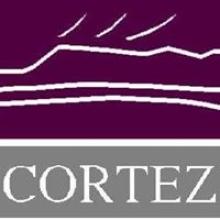
Fast, affordable Internet access for all.

Cortez is the latest community in the state of Colorado to decide whether to opt out of SB 152, which has since passage in 2005 has preempted local authority and prevented communities from building publicly owned telecommunications infrastructure and offering retail service.
The community (pop. 8,500) is located in Montezuma County in the southwest part of the state, just north of Mesa Verde National Park. As first reported in The Journal at the end of January and subsequently approved unanimously by the City Council in the middle of February, a ballot measure later this spring will give city residents the option to restore the municipality’s ability to offer retail Internet service to business and households themselves.
From the ballot flyer provided to residents by the city:
A voter-approved exemption from SB 152 would restore local independence and ability to evaluate all possibilities for next generation broadband services in the City of Cortez and our communities. An exemption supports local choice and options, allowing citizens to make the best decisions based on the needs of our own individual communities, without raising taxes.
It further explains the realities of the limitations imposed by SB 152:
Without such approval, the law limits the ability of Colorado local governments to provide a wide spectrum of services, including: free Internet service in city libraries, parks and community centers; leveraging government infrastructure and partnering with private businesses to provide affordable and high-speed Internet service throughout the entire community; [and] direct provision of broadband services by municipal governments where needed.
A Chance to Build on Past Success
Currently, the city operates the Cortez Community Network, an open access fiber network which started as an I-Net before transitioning to connect businesses with triple-play service offered via private providers. Today, the Cortez Community Network serves hundreds of businesses through seven private Internet Service Providers (ISPs) over roughly 28 miles of fiber, while also connecting “city facilities, county facilities, [the] hospital, fire district, and the school district.”
At the same January 2021 City Council meeting, the city and Montezuma County agreed to contribute matching funds of $300,000 each to extend the network to the local airport to the west of Cortez, also allowing it to bring businesses and about 75 residents online along the way.
A May 2018 feasibility study estimated that a ubiquitous FTTH build would run between $10.8 and $14.3 million. While often municipal networks can take advantage of existing electric poles to hang aerial fiber for part or all of the network to save costs, CCG Consulting noted at the time that “much higher-than-industry-average pole attachment costs” via utility provider Empire Electric means burying the network is a viable option. The added benefit to the latter would be increased reliability and lower ongoing costs down the road.
The study suggests that while there are particular design and funding challenges for Cortez to consider, “many customers [are] getting slower speeds than what they are purchasing,” and the consequences of not moving forward would be a continuing increase in prices and widening digital divide at the hands of the incumbent monopoly provider.
If approved, Cortez will join more than a hundred and fifty other Colorado communities which have also opted out of SB 152. The city has created an email address that residents who have questions about the measure can contact and listed on the flyer as well.
City officials have outlined the issues at stake for community residents in particularly clear terms on its website:
We do have an attractive labor force, and our quality of life is excellent. How can we best leverage these things? The broadband project could provide clean industry for the area, help existing businesses expand, and is attractive for the telecommuter that works from home.
We have gotten to a point now where Internet service is like your water or your sewer service, or even your electricity. People are building their lives and their livelihoods around it and they expect it to work and work easily. The bottom line is that getting broadband to citizens and businesses is becoming a necessity for a community's economic survival in the global economy.
The future of too many American communities is being held hostage by the fact that they do not meet the rate-of-return requirements for investments in next-generation networks by private service providers.
Ballots will be mailed to voters on Monday, May 17th and are due back by June 8th.
If you’re interested in the origins of the Cortez Community Network, read our previous coverage or listen to Christopher talk with General Services Director Rick Smith in episode 310 of the Community Broadband Bits podcast below.
